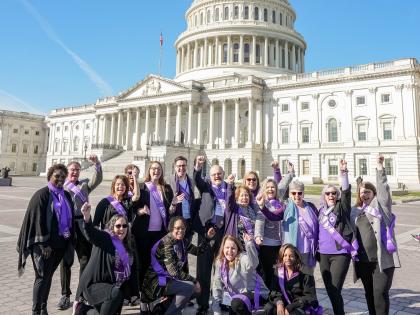Utah State Alzheimer’s Plan Overview

In March 2011, Utah’s state legislature passed Senate Bill 48, establishing the Utah State Plan Task Force within the Utah Division of Aging and Adult Services. Tasked with assessing the current and future impact of Alzheimer’s disease and other dementia within the state, the Task Force included representatives from state agencies, homecare providers, health plans, and elder law, as well as state legislators, an individual living with the disease, caregivers, and the lieutenant governor. After collecting public feedback, the Task Force drafted Utah’s State Plan for Alzheimer’s Disease and Related Dementias: Action Plan for 2012-2017, which was published in January 2012. In early 2018, Utah updated their plan, releasing Utah's State Plan for Alzheimer’s Disease and Related Dementias, 2018 to 2022. In 2023, the Utah Alzheimer's Disease and Related Dementias Coordinating Council released a new state plan with five priorities dedicated to addressing the needs of people living with dementia, caregivers, and health care professionals.
Utah 2026 Policy Priorities

Create an Appeals Process for Involuntary Discharges
Individuals living with Alzheimer’s and other dementia make up a significant portion of those using long-term care services. They also have unique needs that often make care delivery and communication more challenging. Residents of long-term care communities can be discharged from their home without notice or cause, without the opportunity to appeal. Transfers or discharges can be very traumatizing to residents, especially those living with dementia. The Alzheimer’s Association is urging state lawmakers to enact legislation to establish a review and appeal process for involuntary discharges to improve the quality of dementia care across the state.

Empower Mobile Crisis Response Units with Dementia Training
With a growing dementia population, state officials need to be prepared to appropriately respond to dementia-related behaviors to prevent a crisis situation from escalating. Utah’s Mobile Crisis Outreach Team is a cornerstone of the state’s behavioral health response network. The Alzheimer’s Association is urging Utah policymakers to require all Mobile Crisis Response Units across Utah to receive training on how to recognize and respond to dementia-related behaviors.
Sign Up to Learn About Advocacy Opportunities in Utah

Find My Chapter
Together, we’re making an impact. Find an Alzheimer’s Association chapter in your community for more ways to engage.
Contact Us
State Affairs Contact: Tory Roberg
Phone: 602.782.3621
Email: troberg@alz.org
38,300
people living with Alzheimer’s in Utah
115,000
Utahans are providing unpaid care
$255 Million
Medicaid cost of caring for people living with Alzheimer’s (2025)
209.1%
increase in Alzheimer’s deaths 2000-2022
19%
in hospice with a primary diagnosis of dementia
213.2%
increase of geriatricians in Utah needed to meet the demand in 2050
Resources to Drive Change in Utah
The following resources developed by AIM and the Alzheimer’s Association will help you learn more about the issues impacting people living with Alzheimer’s and their caregivers, how Utah policymakers are addressing these gaps, and how you can help drive change.